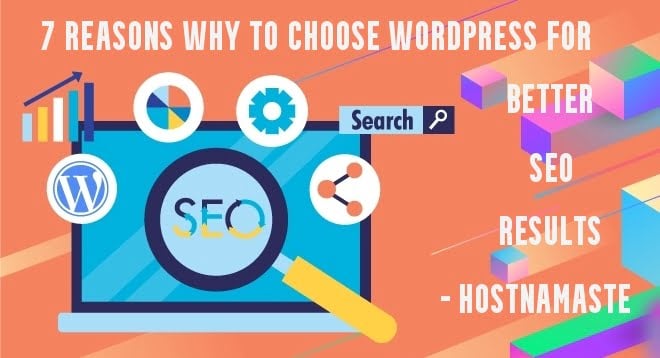
If you plan to build a website and consider WordPress as a platform for these purposes, you’re looking in the right direction. It’s not only the most popular CMS on the market powering more than 40% of all the websites on the Internet, but it also has the most developed community of developers and users, and if you need some specific functionality added to your website, most probably several plugins and widgets were already developed, so you have options to choose from to pick up the best variant.
Another argument for choosing WordPress is that it’s relatively easy to start building a website. Even if you are not a professional developer, the intuitive settings, interface, and community of users who will gladly help you will simplify this job even more. Add numerous online tutorials and web design courses to get acquainted with the basics of building the page layouts, necessary elements combined with best practices, and you will receive impressive results.
Besides that, it’s the best CMS for boosting your search engine rankings. When you build your website, it’s natural that you want users to visit it, the more the better. Why else would one want to do it? In order to attract the audience, people need to see your website when they do a google lookup to buy something, seek advice or want to know about the niche you are working in.
So here we go with the top reasons why your SEO efforts can benefit from choosing WordPress:
7 reasons why to choose WordPress for Better SEO Results – HostNamaste
1) Easy way to make your website mobile-responsive
As the pace of life speeds up and the tendency to do everything on the go spreads, more people are visiting websites from their phones. Starting from 2019, Google uses mobile-first indexing, that’s why having a responsive design is SEO-critical. What is great in WordPress, is that there are tons of responsive themes. Using them you no longer need to worry about doubling the efforts to adapt your website to mobile devices, because the design is automatically adjusted.
2) Inbuilt functionality to set user-friendly URLs
WordPress allows setting up a custom structure for URLs of your website. This way you can set up easy-to-read links for your new posts that will be clear to your users as they will be based on the article title, instead of bearing a bunch of symbols and numbers. It’s not only about being more informative and user-oriented but also another opportunity to insert a target keyword into the URL to increase the possibility of ranking higher in the SERP results.
3) Availability of plugins covering all the SEO needs
There are many WordPress tools that simplify SEO management including both free and paid options. YoastSEO, Rankmath, All in one SEO pack are just to name a few. With the help of such plugins, you can organize the keyword tracking, automatic schema generation depending on the type of the post, and custom XML maps generation and organize metatag management without leaving your admin dashboard.
4) Image SEO management
More than 65% of the population percept information better if it’s provided visually over other formats. Supplementing your articles, and posts with images increase interaction and time spent on pages that have a positive impact on conversions. For shops, it goes without saying that product images are essential, so image optimization for SEO is one of the priorities. WordPress offers an inbuilt media gallery feature that allows specifying the text description for the image using alt attribute for these purposes. It’s one more way to insert the target keywords to your website.
On the other hand, if a website is stuffed with images, it may have a negative SEO effect due to the increased loading time. To mitigate this aspect, there image optimization plugins like Shortpixel that allow loading images via CDN so that they do not consume servers resources and images take less time to open for users when they visit a website
5) Technical SEO optimization
Speaking of decreasing loading time, it’s a part of technical SEO optimization, is no less important than taking care of getting more links. Because when your website is loading slow, it detracts users and bots, thus the process of indexing new pages can take longer. WordPress has plenty of plugins to improve it. They can help you to achieve asynchronous loading of javascript and other frontend elements, content caching, and minifying the heavy scripts so that the website opens in a matter of milliseconds.
6) Markup
The post structure is one of the key elements of optimization because search engine bots use it for indexing. They cannot read the content, so they crawl your pages and analyze how well different elements of HTML markup are used like lists, headers, presence of title, etc. WordPress default editor empowers you to create a precise structure to make your page looking friendly both for real users and bots.
7) Easy integration with external marketing and f
When you run a business website, it’s likely that you will use various additional tools to enable customer support for the website or power your marketing campaigns like CRM, Analytics, Having a WordPress Analytics tool. If you use WordPress, you can rest assured that you will find an easy way for integration, as there are plugins for the most common tools including but not limited to Google Analytics and other G products, Salesforce, Zoho, and Mailchimp. Furthermore, both of the most popular standalone software used for SEO – Ahrefs and Semrush – developed separate WordPress plugins to connect the website with their accounts.
To Wrap Up
The WordPress community is growing and with the tendency to simplify web development it’s getting easier than ever to launch your online presence. Using features WordPress add-ons offer, you can tailor it to any needs starting from the personal blog, and portfolio to a large e-commerce business. For sure, just the platform does not do the SEO work for you, and it’s necessary to allocate both financial and human resources to growing your website authority, but with WordPress, it’s much easier.



